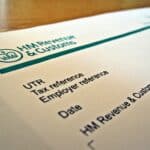A guide to selling your small business
Reading Time:
Establishing a business takes a lot of time and effort. You may have to work hard for years before you start reaping the financial benefits, but a time will come when you may want to seek a new business challenge or retire and therefore maximise as much value as you can from the selling of your enterprise. It’s a big decision to make and can be a challenging task, with many taxes and legal implications to consider. However, perseverance through the process is the key to success.
For some people, a small business is like a child that they have nurtured and watched grow. For others, it has a less emotional attachment and is purely seen as a means of making money and then selling it if the time or the price is right. If you want to sell a business, there is a process that you will need to go through to give yourself the best possible chance of selling your small business for the best possible price.
What is your motivation to sell?
People have different motivations to sell their commercial venture. It is essential to ask yourself why you want to sell the business. It may be driven by retirement, looking for a new challenge, the business is losing money, or just simply boredom. Ultimately your decision may be driven by market conditions being just suitable for making a good profit.
Whatever it is, you must sell the idea yourself before putting it up for others to buy. Therefore, it would be best if you were dedicated to selling the business, and once you make up your mind, it is time to move forward and do it.

Preparing your small business for sale
Before you advertise the sale of your business, ensure that everything is in order.
- Pay all your taxes
- Fulfil any regulatory requirements
- Settle your accounts with suppliers and clients
- Get all your leases and contracts in order
- Give your business some TLC (lick of paint, keep well maintained, do repairs etc)
- Get advice from your Accountant or Legal adviser on the best acquisition deal
Your books should be impeccable, following essential bookkeeping practices. The operational side should also be running like a well-oiled machine.
Organise your business paperwork. If there have been any regulatory infractions, settle those issues before putting the business up for sale. If you need regulatory approvals to sell, work on that too. If you can demonstrate all your business processes are in good running order, it will boost your chances of fetching a much higher price.
Make sure your small business’s physical appearance is not unsightly, as it can be a major turn-off for potential buyers. The offices must be tidy, and if you have manufacturing or storage units, make sure they have been well maintained. It won’t take much for any prospective buyer to be put off by neglected and damaged workspaces.
A lick of paint and taking care of minor repairs can help you sell. It is a lot easier to sell a business that has everything in an orderly manner. However, if you do clinch a sale, having not taken care of the above, you may risk not getting the price your business deserves because it does not look aesthetically pleasing.
Get your business evaluated
Getting your business appraised by a professional is a great idea. The appraisers look into the various aspects of the company, including its assets, projected profits, and the sector it is sitting in to come up with its value. It is an additional expense but a worthwhile one. This step will help you know what you can sell the small business for and give potential buyers less wiggle room to haggle on the price if you can back up your estimate with strong supporting evidence.
Is tax payable when I sell my small business?
If you make a profit when you sell your business, you will need to pay Capital Gains Tax on anything over your tax-free allowance. There are, however, some tax reliefs that can lower the expense:
- Business asset disposal relief – as long as you’ve owned the business (as a sole trader or business partner) for at least two years you will pay tax at 10% on all gains on qualifying assets.
- Business asset rollover relief – you can delay paying Capital Gains Tax when you sell some assets or use all or part of the assets if bought within three years.
- Incorporation relief – you may be able to delay paying Capital Gains Tax if you transfer your business to a company in return for shares and will not pay any tax until you sell (or ‘dispose of’) the shares.
- Gift hold-over relief – you do not pay Capital Gains Tax when you give away the assets the person you give them to pays Capital Gains tax (if any is due) when they sell (or ‘dispose of’) them.
If you are registered for VAT, you will also need to consider any VAT your company pays. You will also need to contact HMRC so that the transfer of ownership can take place without a hitch.
If you are self-employed and have stopped trading, you must inform HMRC as soon as possible. You will need to work out your final trading income and complete a self-assessment tax return and the date you stopped.

How to value your small business
A business valuation helps determine the market value of your company. Using several different measures will get a better picture of how much your business is worth. We recommend this process to entrepreneurs and small business owners looking to sell their company and should include the following:
- The cost to set up a similar business from scratch.
- Value the assets of a business
- The business’s reputation
- How old is the business?
- What products you sell, or services you offer
- Business turnover over a fixed term or previous tax year
Ultimately, it becomes a bit of a balancing act between making sure your valuation does not undervalue your business or inflate its value which puts off potential buyers.
Finding a buyer
Achieving that perfect match in finding the right buyer for your business should not be rushed, and the transfer of business ownership may take a little while to get over the line, too (similar to a property sale). On the other hand, if your business is well established, then ‘word of mouth’ may be enough to generate enough interest. But realistically, you will probably need to use several marketing methods to get your message out to as many potential buyers as possible.
Use your business contacts or networking groups, post messages on your social media platforms or contact specialist publications or websites (EG: business buyers, rightbiz) to maximise interest from potential buyers.
Consider hiring a merger or acquisition professional to help in the process. These brokers charge a fee for their services, but they will help you find the right type of buyer and get you a better price. Using a broker may be more appropriate if the economy is suffering a downturn or your business is harder to sell because you offer a niche product or service.
If you meet an interested party, do not accept the first offer you receive. Instead, keep your options open to other potential buyers, at least until negotiations move to a more advanced stage. During those early discussions, make sure you request any offer in writing.
Once the deal is done
Once you have signed on the dotted line and the agreements are all in place, you can take your employees through the following steps regarding how the sale will affect them and where they can go for more information or support.
Avoid spending any profits too quickly until you have paid any tax that might be due.
If selling your small business does take a while, don’t lose heart or get frustrated. Instead, be patient, as a suitable buyer offering the price you want will come along in due course.
Also Read: Guide to Auto-Enrolment for Small Businesses






